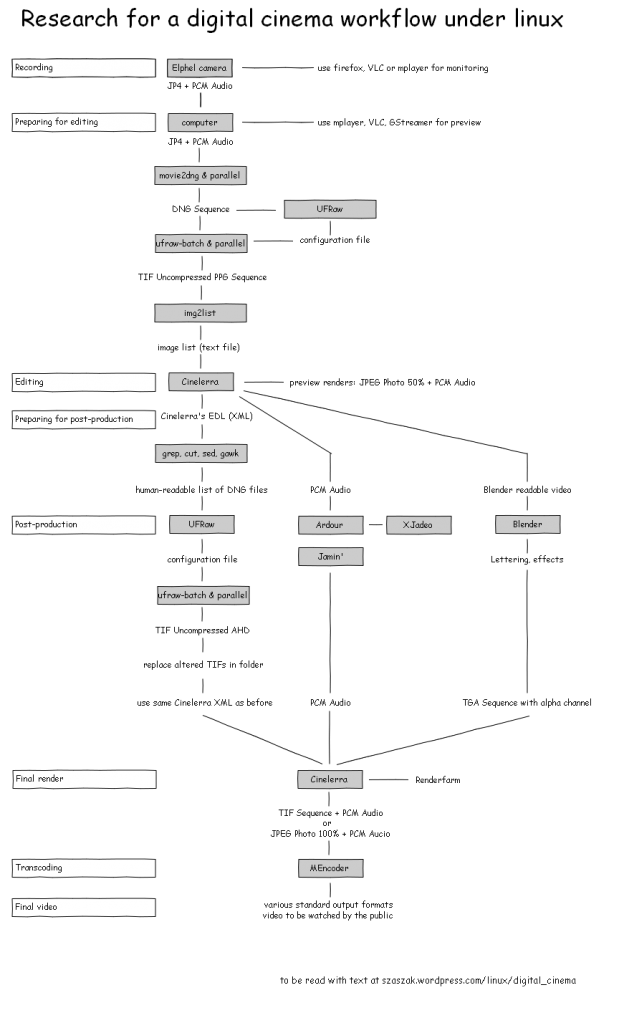GPL workflow
The Apertus project aims to create a powerful, free and open (in terms of liberty) cinema camera that filmmakers love to use. The project is based on the Elphel open source camera.
The Apertus website has a new sub site ‘about the research to achieve a 100% free software workflow to post-process video under Linux.’
So there is one project that sounds worth supporting! There is F/LOSS video editing / transcoding / processing software, there are open codecs, hardware is being worked on … And filmmakers need to be able to somehow tie the bits together in a workflow.

The info that you will find on this still very young site mainly concerns testresults to convert the JP4 camerafiles, and loading DNG still files into Cinelerra.
“The research aims at establishing a digital cinema editing workflow made exclusively under Linux machines. The steps described below start at the point in which we already have a sequence, or many sequences, of digital negative (DNG) files. In the diagram, they correspond to the stages immediately after the third grey box. Everything described from there on has been tested and is documented here.”
Even though it is the aim of this documentation to gather information related to the whole process – which includes capturing and monitoring the recording, transferring the data to the computer, playing the JP4 files and finally converting them to DNG sequences – the previous parts are can be retraced by putting together information that can be found at Apertus’ site or that is spread throughout Elphel’s Wiki. We can consider that, therefore, as a second step towards our objective.”
The reason for choosing for DNG as part of this workflow is not all that clear to me. DNG is an Adobe owned still image format that is not an ISO standard. The ‘open’ license under which it is published, does allow reading and writing, but altering the specification and republishing it … ? Surely not GPL as the title of the sub-site suggests.
For the parts of the workflow for which there are no Free (as in …) options it would be nice to write recommendations. That way, people working on the codecs, videomakers, software programmers, hardware builders can help think of alternative solutions.
Recent Comments